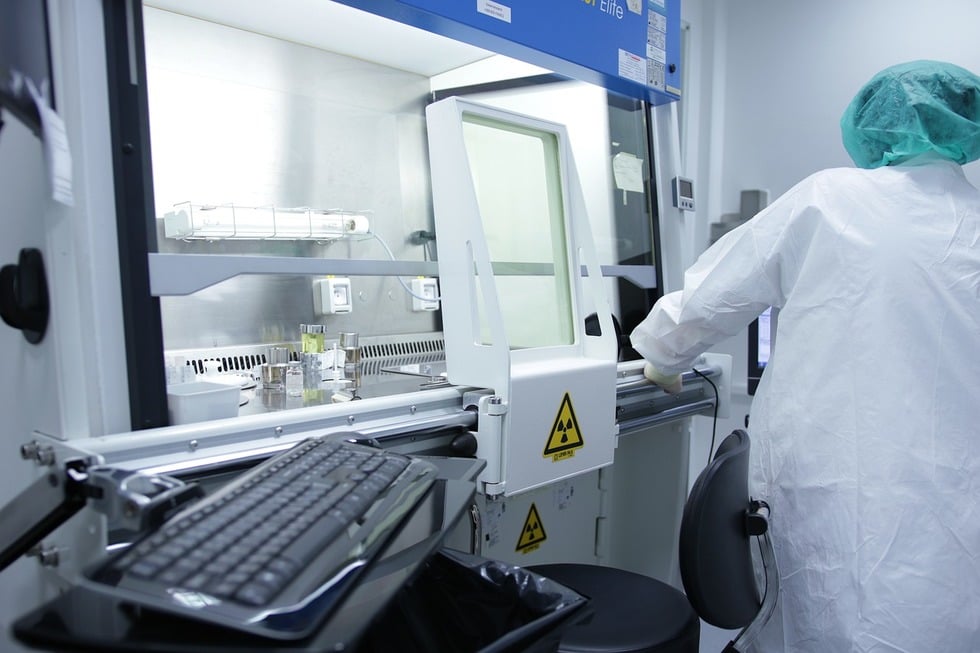Menu
Blog
What Kind Of Lymphoma Does Roundup Cause?
Posted by Alexander Gallo | Jun 04, 2023 | 7 Comments
The kind of lymphoma Roundup is suspected of causing is primarily non-Hodgkin. Roundup's herbicidal ingredient, glyphosate, has been deemed carcinogenic and specifically connected to non-Hodgkin lymphoma (NHL) and large B-cell lymphoma. The popular herbicide has also been linked to acute myeloid leukemia (AML).

On top of these cancers, glyphosate has been studied for its effects as an endocrine disruptor. Scientists have also established a connection between glyphosate and reproductive issues, birth defects, kidney disease, and liver disease. Furthermore, the ingredient is likely to destroy helpful gut bacteria and harm DNA in human embryonic, placental, and umbilical cord cells.
Current Trends Linking Roundup Exposure to Lymphoma
Monsanto, the manufacturer of Roundup, has long denied any ties between its product and lymphoma. Ample research from leading science and health organizations contradicts this claim. The evidence keeps flowing, marking an unmistakable connection between glyphosate and lymphoma, with many benchmarks to this effect occurring in rapid succession in 2019.
- In 2015, the World Health Organization's International Agency for Research on Cancer concluded that glyphosate is a “probable human carcinogen.”
- In 2017, the State of California added glyphosate to its Office of Environmental Health Hazard Assessments' (OEHHA) list of cancer-causing chemicals.
- In February 2019, University of Washington (UW) researchers' meta-analysis of studies on glyphosate revealed a “compelling link” between glyphosate-based herbicides and NHL.Some of the data specifically indicated that agricultural workers who were heavily exposed to glyphosate suffered a 41 percent higher risk of developing NHL over their lifetimes than people who either never used glyphosate or used it infrequently.
- The UW group reviewed studies conducted between 2001 and 2018. One 2018 investigation studied more than 54,000 individuals who worked as licensed pesticide applicators. UW's study also revealed a correlation between occasional use of Roundup and other glyphosate products and NHL.
- In January of 2019, Environmental Sciences Europepublished an analysis that questioned the U.S. Environmental Protection Agency's (EPA) classification of glyphosate. (In 2017, the EPA indicated in a draft risk assessment glyphosate “is not likely to be carcinogenic to humans”).
People at the Highest Risks of Cancer From Roundup
Roundup has played a role in agriculture since 1974. Over the years, the product gained popularity, eventually extending to global use, both commercially and for home applications.
Among the wide variety of Roundup users today, the populations that stand at the greatest risk of developing NHL or another lymphoma based on use of the herbicide include:
- Commercial farmers
- Military
- Landscaping professionals
- Soil scientists and surveyors
- Horticulturists
- Groundskeepers
- Lawn maintenance workers
Monsanto, Manufacturer of Roundup, Is Being Sued for Negligence
Monsanto is facing lawsuits from thousands of Roundup users after the plaintiffs developed lymphoma and other cancers and illnesses resulting from their exposure to the herbicide. The lawsuits rest on the plaintiffs' establishment of negligence. Specifically, they argue the following points:
- Monsanto designed and sold the Roundup product, which is harmful to humans.
- Monsanto recklessly and negligently failed in testing the Roundup product.
- Monsanto knew that Roundup is carcinogenic, and they did not warn consumers.
- Monsanto attempted to influence scientists and regulators with regard to their conclusions about whether Roundup is safe for consumers.
Extensive Use of Roundup and Other Glyphosate Products Increase Exposure
Although agricultural workers suffer a high risk of glyphosate exposure due to their hands-on use of Roundup, the far-reaching use of the herbicide has increased everyone's exposure to its negative effects. The herbicide has been used in the following applications:
- To kill weeds before planting and after harvest
- Green burndown” treatments to accelerate harvest operations and which yields substantial glyphosate residue in harvested crops (a farming method that has only increased since its introduction in the mid-2000s)
- Landscaping, industrial and commercial facilities, and home gardening—all of which constitute less than 10 percent of glyphosate product usage
Tosi Law LLP Mass Tort Lawyers Can Handle Your Roundup Lymphoma Case
If you have been exposed to Roundup and have since developed lymphoma or another form of cancer or illness, you deserve to receive compensation. You can join the thousands of other plaintiffs who are fighting the greed-driven negligence of Monsanto, while sending a message to corporate America that profits cannot come at the expense of human life.
Tosi Law LLP, a mass tort law firm, is now accepting cases wherein people who have used Roundup have been diagnosed with lymphoma, NHL, or another cancer or illness. Call us today at 888-311-8292 for a free, no-obligation case review.
Related Frequently Asked Questions
Share
About the Author
CONTACT US
SPEAK TO OUR CASE SPECIALIST TODAY!
WE ARE HERE FOR YOU
Our firm believes that victims of gross negligence need a voice. We provide strong representation that is passionate about holding negligent corporations accountable for their actions.
Call For A FREE Case Review!
Get straightforward answers from an experienced lawyer. Call us at 888-311-8292 anytime, day or night.
_LLC.png?width=2818&height=1081&name=Tosi%20Law%20Logo_All%204_Tosi%20Law%20(Blue)_LLC.png)